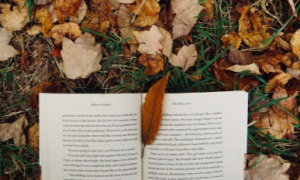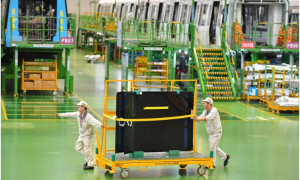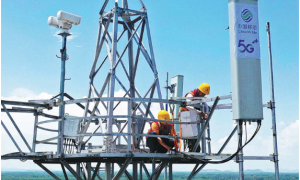grow, become, come, go, turn
这组词都可用作系动词,表示“变成”。它们的区别是:
1.come多指向好的方向转变; go往往指向坏的方面转变; become指向好的(也可指向坏的)方面发展, turn是正式用语,指向好的,也指向坏的方面转变。试比较:
When did that style of dress come into fashion?
那种式样的衣服是什么时候时兴的?
When did that style of dress go out of fashion?
那种式样的衣服是什么时候不时兴的?
2.come的主语往往是人; become的主语可以是人或物; 而go的主语多是物。
3.come的表语通常是形容词; become的表语可以是形容词、代词或名词(须加不定冠词); go和grow的表语为形容词; turn的表语可以是形容词或名词(不加不定冠词)。
grow, boost, elevate, enhance, exalt, highten, hoist, lift, raise
参见raise条。
grow up, bring up, raise, rear
这组词(组)都有“抚养、饲养”的意思。它们的区别在于:
1.raise是非正式用语,英式英语中指“养动植物”,美式英语中指“抚养人”。
2.rear在英式英语中指“抚养人”,在美式英语中指“养动植物”,既指“从小养到大”,也指“教养”,是正式用语。例如:
The mother reared her children wisely.那位母亲很会教养自己的孩子。
We reared our children to help others.我们教育子女要乐于助人。
She likes rearing birds.她喜欢养鸟。
He used to rear pigs.他以前养猪。
3.bring up是动词短语,作“抚养”解时无语体之分,侧重于童年时期的“精心教养”。例如:
The woman brought up four children alone .那个妇女独自养育了四个孩子。
He was brought up to believe that money is the most important thing in life.他所受的教养使他相信,金钱是生活中最重要的东西。
4.grow up的意思是“成长”,侧重于“达到成熟阶段”。例如:
This bush has grown up a lot in the last few months.这矮树丛几个月来已向上长高了很多。
Jane is growing up so fast,I think she's going to be a tall woman.简长得真快,我想她一定能长成一个高挑儿的姑娘。
Stop acting like a child with your bad temper! Do grow up.别耍小孩子脾气了!快成熟点吧。
下面两句意思不同:
In time you will grow to like him.
以后,你会慢慢喜欢他的。
In time you will grow to be like him.
到后来,你会慢慢像他那样的。
下面各句意思相同:
The girl has grown (up) a beautiful young lady.
The girl has grown (up) into a beautiful young lady.
The girl has grown to be a beautiful young lady.
这个女孩已经长成了一位年轻漂亮的 女子。
become,get,grow,turn,go,come
这些动词都可表示“变成,成为”之意。
become最普通用词,作为连系动词,指从一个状态向另一个状态的变化。
get常指某人或某物有意无意地获得引起变化的因素,结果使变成另一状态。
grow常指逐渐地变成新状态,强调渐变的过程。
turn侧重指变得与原来截然不同,有时含贬义。
go作为连系动词,通常与形容词连用,指进入某种状态,从而发生变化,多指不好的状态。
come侧重变化的经过或过程,多用于不良情况。
sow,plant,grow
这一组动词都与种植有关。
sow意为“播、撒、播种、种”,其后跟(the)seeds或“植物(结成种状的)”。
plant意为“栽、插、移植”,其后跟作物(多为苗状的)。
grow作及物动词时,意为“种植、培植”,后接宾语(不表明种状还是苗状,强调种植后的栽培及管理过程);作不及物动词时,意为“生长、发育”;作系动词时,意为“变得”。










